Making Sense: History and the Sensory Past
Shannon Lectures Fall 2012 Schedule
All lectures are held on Friday afternoons 3:00-4:30 in 303 Paterson Hall, Carleton University, with a reception to follow.
Many of our speakers will also be holding a Master class for graduate students from all disciplines on the morning of their lecture. No registration is required.
Please do not hesitate to contact us with accessibility-related requests or other questions.
“Writing Sensuous Histories”
Constance Classen
September 28, 3:00pm, 303 Paterson Hall, Carleton University
Master class at 11:00am (max 1.5 hours), 436 Paterson Hall, in the History department.
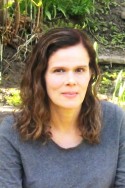 The senses are cultural, as well as physical, in nature. This is most evident with such auditory and visual modes of communication as speech and writing, music and visual arts. However, it is also true of the so-called lower senses of touch, taste and smell. How we touch, what we eat, and the uses we make of scents are shaped by, and in turn communicate, personal and social meanings.
The senses are cultural, as well as physical, in nature. This is most evident with such auditory and visual modes of communication as speech and writing, music and visual arts. However, it is also true of the so-called lower senses of touch, taste and smell. How we touch, what we eat, and the uses we make of scents are shaped by, and in turn communicate, personal and social meanings.
The cultural dimension of perception is indicated by the differences that exist in the ways the senses are employed and valued across cultures. What is true across cultures is also true of history: different periods developed different ways of sensing and making sense. Even something as apparently basic as the number of the senses varies across periods and places.
To uncover the cultural history of the senses, therefore, we must not only look at what psychologists tell us about how the senses function, or at the practical uses to which they have been put, but at how they were understood and experienced. Relying heavily, as we do, on written texts, this presents difficulties for historians. How may we recover past sensations from lifeless texts? And how may we supplement texts with hands-on research? While engaging in such an archaeology of perceptions is challenging, the end result is the creation of sensuous histories which both bring the past into full-bodied life and reveal the worlds of meaning embedded in our perceptual worlds.
Constance Classen Master class, 11:00am (max 1.5 hours), 436 Paterson Hall, in the History department
Interacting with the Past
This class will consist of an illustrated discussion about forms of engagement with the material remains of the past. How can material objects help us to access past sensibilities? And what kinds of sensory responses do historical artefacts, including photographs, elicit in the people who interact with them today? Classen will discuss her recent work and show images. No reading is required.
Constance Classen is a writer and researcher based in Montreal. She has a Ph.D. from McGill University and has held fellowships at Harvard University, the University of Toronto, and the Canadian Centre for Architecture. She is the author of numerous essays and books on the cultural history of the senses, including The Deepest Sense: A Cultural History of Touch (University of Illinois Press, 2012) The Color of Angels: Cosmology, Gender and the Aesthetic Imagination (Routledge, 1998), Worlds of Sense: Exploring the Senses in History and across Cultures (Routledge, 1993), and Aroma: The Cultural History of Smell (Routledge, 1994, co-authored with David Howes and Anthony Synnott). Classen is also the editor of The Book of Touch (Berg, 2005), one of seven books in the Sensory Formations series from Berg Publishers of Oxford, and a founding member of the interdisciplinary Centre for Sensory Studies at Concordia University, which is dedicated to promoting research on the social and aesthetic life of the senses. She is currently editing a six-volume series on the history of the senses for Bloomsbury Publishing and is the principal investigator of a research project on art, museums, and the senses.
“Tasting the Past”
Carolyn Korsmeyer, University at Buffalo, SUNY
October 12, 3:00pm, 303 Paterson Hall, Carleton University
Master class at 11:00am (max 1.5 hours), 436 Paterson Hall, in the History department.
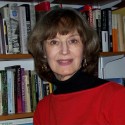 When Charlemagne sat down to dinner, what did it taste like? Does the apple pie you make from your great-grandmother’s recipe taste to you today the way it did to her many years ago? Is it possible to recreate a meal from the past, and if so, does it taste like it did in the past? What actually would this mean?
When Charlemagne sat down to dinner, what did it taste like? Does the apple pie you make from your great-grandmother’s recipe taste to you today the way it did to her many years ago? Is it possible to recreate a meal from the past, and if so, does it taste like it did in the past? What actually would this mean?
Questions about the human senses in history are especially difficult with the sense of taste, because taste (and smell, for the two senses operate together) has a long reputation as a highly subjective sense, seeming to yield experience that is private and inaccessible to anyone but the individual taster. Because even our own contemporaries often disagree about what foods taste “best,” we might wonder if their experiences differ from our own. How much more difficult it must be, therefore, to imagine the experience of someone from a remote era. Indeed, a skeptic might maintain that historically distant tastes are utterly unattainable, and that seeking a “taste from the past” is a futile quest.
In this lecture, I explore various ways to approach to these issues. I argue that the so-called subjectivity of taste is exaggerated, but at the same time, the attempt to reconstruct meals from distant times and cultures presents difficulties that are both practical and theoretical. Available foods have changed over time. Moreover, we the eaters have also changed—for individuals and their sensibilities are partly framed by history and culture. Striving to recreate tastes from bygone times illuminates not only the past but also the conditions that shape present experience, including the flavors we anticipate and savor.
Carolyn Korsmeyer Master class, 11:00am (max 1.5 hours), 436 Paterson Hall, in the History department
Discussion of “The Historicity of the Eye: A Symposium,” Journal of Aesthetics and Art Criticism 59, no. 1 (Winter: 2001). The symposium centers on the philosophy of Arthur C. Danto, who provides an initial statement and then responds to three commentators, Noel Carroll, Mark Rollins, and Whitney Davis. (The whole symposium includes five short pieces totalling just 35pp. These materials are available on JSTOR.) By assigning this reading, which considers questions about vision and picture perception, Professor Korsmeyer offers an opportunity to discuss approaches and methods of argument in relation to the senses, and history more broadly.
Carolyn Korsmeyer is Professor of Philosophy at the University at Buffalo, State University of New York. Her chief areas of research are aesthetics and emotion theory. Those interests are combined in her recent book, Savoring Disgust: The Foul and the Fair in Aesthetics (2011). She is also the author or editor of nine other books, including Making Sense of Taste: Food and Philosophy (1999) and Gender and Aesthetics: An Introduction (2004). She is a past president of the American Society for Aesthetics. Her current research, tentatively titled “Things: In Touch with the Past,” investigates the role of the senses, especially touch, in the aesthetic apprehension of historical artifacts. Extending this inquiry to the sense of taste, she also considers if there is such a thing as an “authentic” taste experience that matches or replicates what historical experiences might have been. This question is one that will be pursued in her Shannon Lecture.
“Renumbering the Sensorium: How the Blind Man Lost a Cane and Regained His Senses”
Georgina Kleege, University of California, Berkeley
October 19, 3:00pm, 303 Paterson Hall, Carleton University
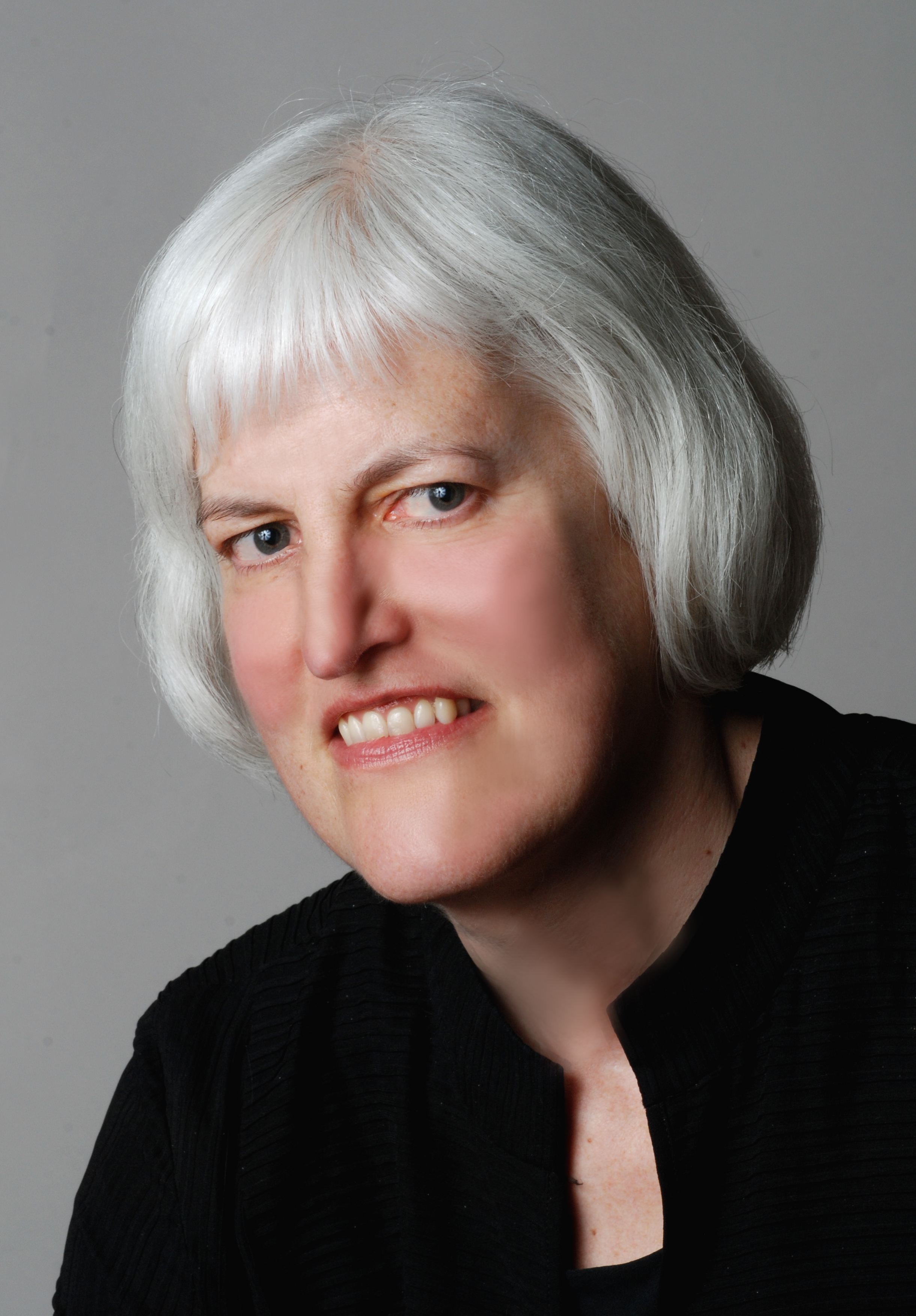 I will begin with a discussion of the figure I call The Hypothetical Blind Man, who has long served as a prop for theories of consciousness. From the Enlightenment to the present, philosophers and cognitive scientists have compared the epistemology and ontology of the normative sighted subject to the experiences of an idealized blind man who is always understood to be both totally and congenitally blind, and to live so far at the margins of society as to have little or no exposure to visual concepts and terminology. Theorists devised a one-to-one correspondence between the two eyes of the sighted man and the two hands of the blind man. If the sighted man is all eyes, the blind man is all hands. It is as if neither man has any other sense experience. . I will compare these theoretical treatments of blindness to autobiographical accounts by blind writers, artists, scientists and philosophers. These accounts affirm the significance of touch in blind experience, but also complicate our understanding of tactile and haptic sensation. I will also consider their descriptions of other sense experiences. In all these instances the point is not that blind people are endowed with supernaturally enhanced sensation, rather they develop techniques of heightened attention and interpretation. At the same time, they demonstrate the many ways that the senses work in combination and counterpoint. Finally, I will suggest that our traditional understanding of five discrete sensory modalities is inadequate to describe the diversity of human sensory experience.
I will begin with a discussion of the figure I call The Hypothetical Blind Man, who has long served as a prop for theories of consciousness. From the Enlightenment to the present, philosophers and cognitive scientists have compared the epistemology and ontology of the normative sighted subject to the experiences of an idealized blind man who is always understood to be both totally and congenitally blind, and to live so far at the margins of society as to have little or no exposure to visual concepts and terminology. Theorists devised a one-to-one correspondence between the two eyes of the sighted man and the two hands of the blind man. If the sighted man is all eyes, the blind man is all hands. It is as if neither man has any other sense experience. . I will compare these theoretical treatments of blindness to autobiographical accounts by blind writers, artists, scientists and philosophers. These accounts affirm the significance of touch in blind experience, but also complicate our understanding of tactile and haptic sensation. I will also consider their descriptions of other sense experiences. In all these instances the point is not that blind people are endowed with supernaturally enhanced sensation, rather they develop techniques of heightened attention and interpretation. At the same time, they demonstrate the many ways that the senses work in combination and counterpoint. Finally, I will suggest that our traditional understanding of five discrete sensory modalities is inadequate to describe the diversity of human sensory experience.
Georgina Kleege joined the English department at the University of California, Berkeley in 2003 where in addition to teaching creative writing classes she teaches courses on representations of disability in literature, and disability memoir. Her collection of personal essays, Sight Unseen (1999) is a classic in the field of disability studies. Essays include an autobiographical account of Kleege’s own blindness, and cultural critique of depictions of blindness in literature, film, and language. Many of these essays are required reading for students in disability studies, as well as visual culture, education, public health, psychology, philosophy and ophthalmology. Blind Rage: Letters to Helen Keller (2006) transcends the boundaries between fiction and nonfiction to re-imagine the life and legacy of this celebrated disability icon. Kleege’s current work is concerned with blindness and visual art: how blindness is represented in art, how blindness affects the lives of visual artists, how museums can make visual art accessible to people who are blind and visually impaired. She has lectured and served as consultant to art institutions around the world including the Metropolitan Museum of Art in New York and the Tate Modern in London.
“Medical Sensations: Building an Exhibition about Medicine Through the Five Senses”
David Pantalony, Canada Science and Technology Museum
October 26, 3:00pm, 303 Paterson Hall, Carleton University
Master class at 11:00am (max 1.5 hours), 436 Paterson Hall, in the History department.
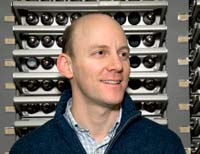 Sight, sound, touch, smell and taste are fundamental to the medical experience. Throughout history, medical practitioners have used the five senses as powerful tools for diagnosis and treatment; countless medical technologies have developed around these skills. Medical patients have experienced an equally rich sense-scape of beeps, colours, tastes, smells and tactile sensations; entire medical fields and industries have specialized in studying, managing and improving these experiences.
Sight, sound, touch, smell and taste are fundamental to the medical experience. Throughout history, medical practitioners have used the five senses as powerful tools for diagnosis and treatment; countless medical technologies have developed around these skills. Medical patients have experienced an equally rich sense-scape of beeps, colours, tastes, smells and tactile sensations; entire medical fields and industries have specialized in studying, managing and improving these experiences.
The Canada Science and Technology Museum is developing a national exhibition on the subject of medicine and the five senses – past, present and future. We are focusing on the surprising role played by all the senses in medicine, their evolving relations with technology and the implications for medical practice and patient experience. In order to do this, we have brought together an unlikely community of historians, medical professionals, patients, artists, museums, artifacts, researchers, and technology companies around a theme with universal appeal. In this lecture, I will describe the development of this project and argue that, above all else, a focus on medicine and the five senses reconnects us to the essential human dimension at the heart of the medical enterprise.
David Pantalony Master class, 11:00am (max 1.5 hours), 436 Paterson Hall, in the History department
For his master class, David Pantalony will be bringing artifacts from the collection of the Canada Science and Technology Museum. In preparation for the session, please read the classic account of artifact analysis by Jules David Prown, “The Truth of Material Culture: History or Fiction?” (Please contact sara_spike@carleton.ca to receive a copy.) This class will introduce students to the art of examining artifacts from multiple perspectives. We will discuss the reading, Dr. Pantalony will present a few case studies, and there will be artifacts to interrogate. One of the goals, in line with his Shannon lecture later that day, will be to show how collection research is a multi-sensory experience.
David Pantalony is Curator of Physical Sciences and Medicine at the Canada Science and Technology Museum, and an Adjunct Professor in the Department of History at the University of Ottawa where he teaches artifact-based seminars drawing on the collections of the CSTM. He is the author of Altered Sensations: Rudolph Koenig’s Acoustical Workshop in Nineteenth-Century Paris (2009), for which he was awarded the 2012 Paul Bunge Prize. As a historian and curator of Canadian medical artifacts, Pantalony has published and lectured on the history of atomic medicine in Canada, on the “colour of medicine” in the CSTM’s medical artifacts collection, and on questions of artifact provenance and material culture research methods. He is also the Chair of the History of Physics Division of the Canadian Association of Physicists. Pantalony is an organizer of the CSTM’s innovative annual Reading Artifacts Summer Institute, which brings together Canadian and international scholars from across the disciplinary spectrum to immerse themselves in the museum’s collection. He is currently developing an exhibit for the CSTM on Medicine and the Senses. His contribution to the Shannon Lecture Series will relate to this work.
“Sensing War: Children’s Memories of Wartime Atlantic Canada, 1939-1945”
Barbara Lorenzkowski, Concordia University
November 2, 3:00pm, 303 Paterson Hall, Carleton University
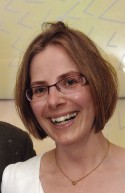 In the port cities of Atlantic Canada, children and youth grew up in a self-declared battle front during the years of the Second World War. For these youngsters, the war had a raw immediacy; for the Battle of the Atlantic transformed the waters and streets of St. John’s, Newfoundland and Halifax, Nova Scotia beyond recognition. It was not just the navy, army, air force, and merchant marine that clogged the harbours and city streets; an unprecedented influx of military vehicles, as well, invaded the city, curtailing children’s range of movement and spaces of play. This lecture is an exercise in sensuous geography. Drawn from my larger work on the spaces of childhood in Atlantic Canada, it listens to close to fifty childhood recollections of the wartime Atlantic. In making sense of the “war zone” that were Halifax and St. John’s, my interview partners evoked the allure of nocturnal urban spaces, the tastes of cigarette buds, the sounds of German U-boat attacks, the furtive touching of a father’s letter, and the stunning sight of the Bedford Basin and the St. John’s harbour, filled to the rim with war convoys. If, as Proust held in Remembrance of Things Past, the senses provide a key to both memory and the emotions, these oral recollections serve as a reminder that the spaces of childhood are very much “sensescapes” – recalled all the more vividly if interview partners had been granted (or secretively claimed) the freedom to roam in their cities at war.
In the port cities of Atlantic Canada, children and youth grew up in a self-declared battle front during the years of the Second World War. For these youngsters, the war had a raw immediacy; for the Battle of the Atlantic transformed the waters and streets of St. John’s, Newfoundland and Halifax, Nova Scotia beyond recognition. It was not just the navy, army, air force, and merchant marine that clogged the harbours and city streets; an unprecedented influx of military vehicles, as well, invaded the city, curtailing children’s range of movement and spaces of play. This lecture is an exercise in sensuous geography. Drawn from my larger work on the spaces of childhood in Atlantic Canada, it listens to close to fifty childhood recollections of the wartime Atlantic. In making sense of the “war zone” that were Halifax and St. John’s, my interview partners evoked the allure of nocturnal urban spaces, the tastes of cigarette buds, the sounds of German U-boat attacks, the furtive touching of a father’s letter, and the stunning sight of the Bedford Basin and the St. John’s harbour, filled to the rim with war convoys. If, as Proust held in Remembrance of Things Past, the senses provide a key to both memory and the emotions, these oral recollections serve as a reminder that the spaces of childhood are very much “sensescapes” – recalled all the more vividly if interview partners had been granted (or secretively claimed) the freedom to roam in their cities at war.
Barbara Lorenzkowski teaches at Concordia University in Montreal. She is the author of Sounds of Ethnicity: Listening to German North America, 1850-1914 (University of Manitoba Press, 2010). In 2005, she joined Concordia University where she acted as program chair for the 2010 annual meeting of the Canadian Historical Association. Her current research project is a FQRSC-funded study on childhood, space, and memory in wartime Atlantic Canada, tentatively entitled “The Children’s War: Growing Up in the Port Cities of St. John’s, Halifax and Saint John.” This study is based on close to one hundred oral history interviews conducted over the past three years. Her Shannon Lecture will investigate the sensory dimensions of these childhood experiences.
“Sensory History and the American Civil War”
Mark M. Smith, University of South Carolina
November 9, 3:00pm, 303 Paterson Hall, Carleton University
Master class at 11:00am (max 1.5 hours), 436 Paterson Hall, in the History department.
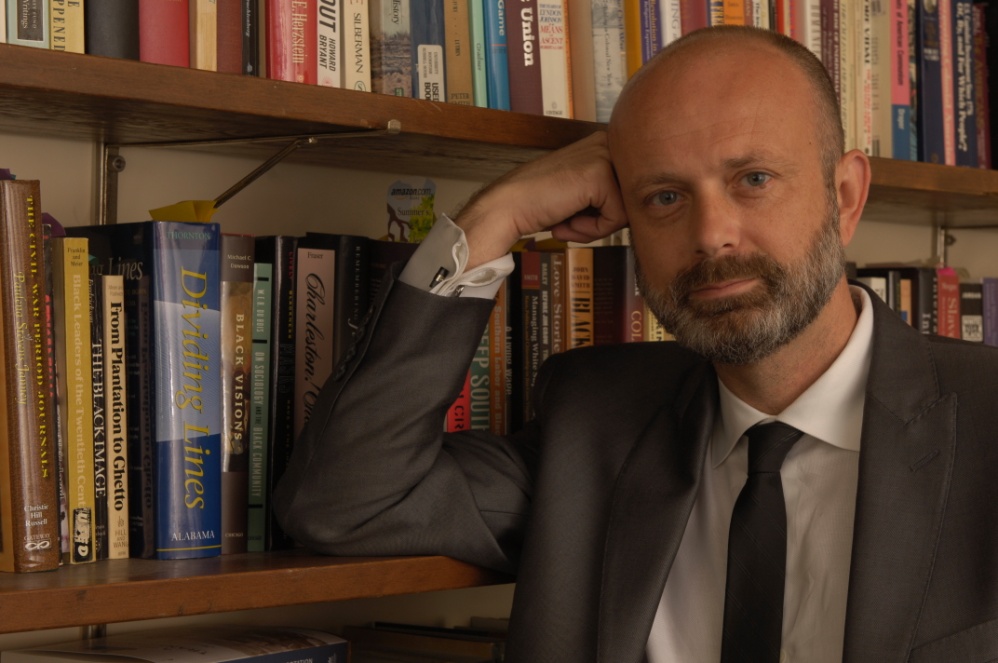 Although sensory history has flourished in recent years practitioners have written little about the sensory experience and meaning of war. This lecture, offered on the occasion of the Civil War’s sesquicentennial and drawn from my larger, ongoing work, offers a brief sensory history of the American Civil War. It considers the ways soldiers and civilians understood the sights, sounds, smells, tastes, and touches of war in an effort to say something meaningful about the experience of war, both viscerally and intellectually. The lecture argues that the sounds of secession, the sights of First Bull Run, the smells of Gettysburg, the tastes and touches of various battles and sieges represented a sensory atavism for many Americans in the 1860s. The sensory experience of the American Civil War reminded Americans, North and South, that their putative mastery of the senses was, in fact, a hollow conceit. Smells, sound, tastes, once presumed contained and managed now, under the conditions of war, proved fugitive, beyond control. The sensory experience of war served to remind self-styled moderns that their reach exceeded their grasp.
Although sensory history has flourished in recent years practitioners have written little about the sensory experience and meaning of war. This lecture, offered on the occasion of the Civil War’s sesquicentennial and drawn from my larger, ongoing work, offers a brief sensory history of the American Civil War. It considers the ways soldiers and civilians understood the sights, sounds, smells, tastes, and touches of war in an effort to say something meaningful about the experience of war, both viscerally and intellectually. The lecture argues that the sounds of secession, the sights of First Bull Run, the smells of Gettysburg, the tastes and touches of various battles and sieges represented a sensory atavism for many Americans in the 1860s. The sensory experience of the American Civil War reminded Americans, North and South, that their putative mastery of the senses was, in fact, a hollow conceit. Smells, sound, tastes, once presumed contained and managed now, under the conditions of war, proved fugitive, beyond control. The sensory experience of war served to remind self-styled moderns that their reach exceeded their grasp.
Mark M. Smith Master class, 11:00am (max 1.5 hours), 436 Paterson Hall, in the History department
This master class (open to all) will focus on the area of sound studies through a discussion of forthcoming work by Professor Smith, as follows:
++ “Soundings: or, why historians of the auditory urban past might consider getting their ears wet,” forthcoming in Soundscapes of the Urban Past, K. Bijsterveld et al eds.
++ “Listening to Secession,” from Mark M. Smith, When War Makes Sense: A Sensory History of the American Civil War (forthcoming).
As these pieces have not yet been published, they are available only in hardcopy. Copies will be available in the History department main office (400 Paterson Hall). Alternative pick up locations can be arranged by contacting sara_spike [at] carleton.ca.
Mark M. Smith is Carolina Distinguished Professor of History at the University of South Carolina. He is author of Mastered by the Clock: Time, Slavery, and Freedom in the American South (winner of the Organization of American Historians’ 1997 Avery O. Craven Award and South Carolina Historical Society’s Book of the Year); Debating Slavery: Economy and Society in the Antebellum American South, published by Cambridge University Press in 1998; Listening to Nineteenth-Century America (University of North Carolina Press, 2001), How Race Is Made: Slavery, Segregation, and the Senses (University of North Carolina Press, 2006; a 2007 Choice Outstanding Academic Title), Sensing the Past: Seeing, Hearing, Smelling, Tasting, and Touching in History (University of California Press, 2008), and Camille, 1969: Histories of a Hurricane (University of Georgia Press, 2011), a book based on his 2009 Lamar Memorial Lectures and a product of a National Science Foundation grant, of which he a co-PI, detailing recovery from Hurricane Katrina. Smith has lectured in Europe, throughout the United States, Australia, and China, and is the current President of The Historical Society. He is the editor of several collections and publication series, including Hearing History: A Reader (University of Georgia Press, 2004) and The Handbook of Slavery in the Americas (Oxford, 2010), as well as co-editor of Cambridge University Press’ series, Studies on the American South, and General Editor of the University of Illinois Press’ Studies in Sensory History. Presently Smith is at work on a sensory history of the American Civil War, tentatively entitled When War Makes Sense: A Sensory History of America’s Greatest Conflict, under contract with Oxford University Press.